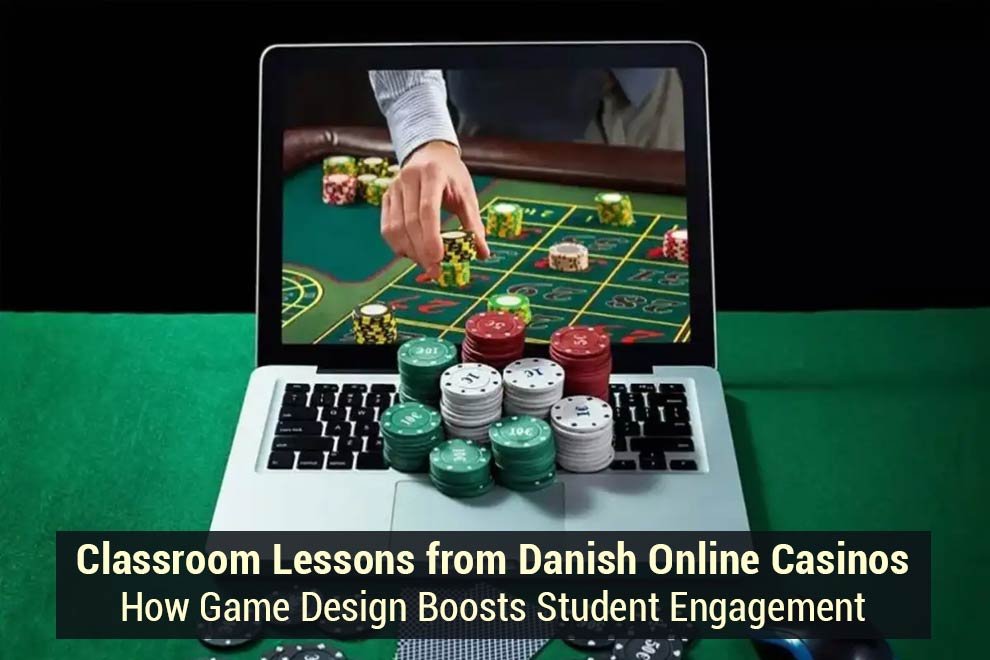Online casinos in Denmark have perfected the art of keeping players engaged for extended periods. Their success stems not from luck alone but from smart game design principles that tap into psychology, motivation, and reward systems. Educators can employ similar techniques when designing learning activities for students; by understanding how game mechanics operate in online casinos, they can use similar approaches in class to increase participation, motivation, and retention.
Below, we explore key game design elements from Danish online casinos and how they may be modified for use in educational environments.
1. Immediate Feedback Keeps Students Motivated
Online casinos excel at providing instant feedback – players know instantly whether they have won or lost, which keeps players engaged and keeps motivation high. In contrast, traditional education often delays this feedback (graded papers returned days later), which can disengage students and reduce motivation to learn. Studies show that real-time responses enhance learning because students can correct mistakes while the material remains fresh in their minds.
How can this be implemented in classrooms?
- Utilize digital tools like Kahoot or Quizlet Live for instant quiz results, making assessments interactive games.
- Give verbal corrections during discussions instead of waiting for written feedback.
- At the conclusion of lessons, utilize exit tickets – short 1-2 question quizzes which students complete before leaving with immediate review – as quick wrap-up checks for your class.
This approach to learning mirrors casino-style gambling, where players adjust strategies based on immediate outcomes. When students see real-time evidence of their progress in learning, they remain engaged and invested.
2. Small Wins Foster Consistent Effort
Casinos keep players engaged through frequent, small rewards – bonus spins, mini-games or celebratory animations after small bets- that provide instant gratification without the need for major effort. In contrast, educational settings often present students with long-term goals (e.g. final exams) which may feel distant and overwhelming; therefore breaking learning down into manageable milestones helps maintain motivation levels.
Practical Applications of this include:
- Chunking” lessons into 10-15-minute segments with comprehension checks in between can help make learning easier for both teacher and pupil.
- By creating a point or badge system where students receive rewards for successfully completing tasks (e.g. “Mastery Badges” for math skills).
- Acknowledging incremental progress – for instance, applauding a student who increases from 60% to 70% on a quiz before striving to reach 80% – should also be celebrated.
This method helps prevent burnout by making learning an achievable and rewarding process, rather than an exhausting marathon.
3. Customization Increases Engagement
Danish online casinos use algorithms to customize game recommendations based on player preferences–suggesting slots, table games, or bonuses that suit individual behavior. Likewise, personalized learning adapts content according to each student’s pace and interests for deeper engagement.
Teachers can personalize learning by:
- Offering choices in assignments–for instance, giving students the option between writing an essay, creating a video, or designing a poster to demonstrate comprehension–is key for student engagement and success.
- Utilizing adaptive learning software (such as DreamBox or IXL ) that adjusts difficulty based on student performance may also be effective.
- Provide differentiated reading materials–enabling more advanced students to delve into deeper topics while others concentrate on basic concepts.
Students take more pride in their progress when their learning experience is tailored specifically for them.
4. Social Interaction Drives Participation
Online casinos frequently utilize multiplayer modes, live dealers, and leaderboards to foster a sense of community and competition among their members. People are naturally social learners; classrooms can harness this by making lessons more interactive.
Effective strategies may include:
- Team challenges–such as team quizzes where collaboration earns points–can also provide fun group-based challenges.
- Peer teaching sessions–in which students explain concepts to each other to deepen and confirm their understanding–can help reinforce student comprehension of concepts.
- Public (but positive) recognition – such as a “Weekly Top Contributor” board which highlights helpful participation.
Social learning not only increases engagement but also builds communication and teamwork skills that prepare students for real-life collaboration.
5. Set Goals and Monitor Progress
The best Danish online casino sites provide players with clear indicators of progress, such as how many spins remain before a bonus or jackpot prize can be won, or how much has been wagered on. This transparency keeps players motivated because they know exactly what to expect; in contrast, students often become disoriented when objectives remain unclear and progress is hard to measure.
Teachers can increase clarity by:
- Beginning each lesson with clearly stated objectives (e.g., “Today you will learn how to solve quadratic equations”) is key.
- Utilizing visual progress trackers – for instance a classroom “skill tree”, where students move their names as they master topics- is one effective method of tracking student progress.
- Provide rubrics so students understand exactly how their projects will be graded.
Students who see a clear pathway toward success are more likely to remain committed and put forth consistent effort.
6. Engage Curiosity Through Surprise Rewards
Casinos use surprise bonuses such as free spins or cash prizes to generate excitement and keep players engaged, much as classroom teachers use unexpected rewards like free spins or prizes to reinvigorate classroom routines and spark curiosity and motivation in students. Introducing occasional, unexpected rewards is a surefire way to keep learners interested and motivate them!
- “Mystery Bonus” questions–randomly inserting high-value questions into a quiz for extra credit–are an example.
- Surprise “game days,” replacing standard lessons with fun educational games after an exceptionally challenging unit, are an exciting way to motivate students.
- Random praise for underrecognized efforts–singling out a student who contributed an amazing idea is always welcome!
Learning becomes dynamic through these unforeseen variables, keeping students attentive and eager to participate.
Conclusion
Danish online casinos succeed by employing psychology–immediate feedback, small wins, personalization, social elements, clear goals and surprise rewards–to create a winning combination in their operations. These same principles can transform classroom learning experience by making learning more engaging, motivating and enjoyable.
By borrowing game design strategies, educators can create lessons that engage their students as effectively as any casino game does. The key here isn’t turning school into a game but using engagement techniques to make education more dynamic and rewarding; when students feel motivated, recognized, and in control of their learning experiences, their performance and retention naturally improve.
Also Read: What Online Casinos Can Teach Us About Instant Feedback in Learning










